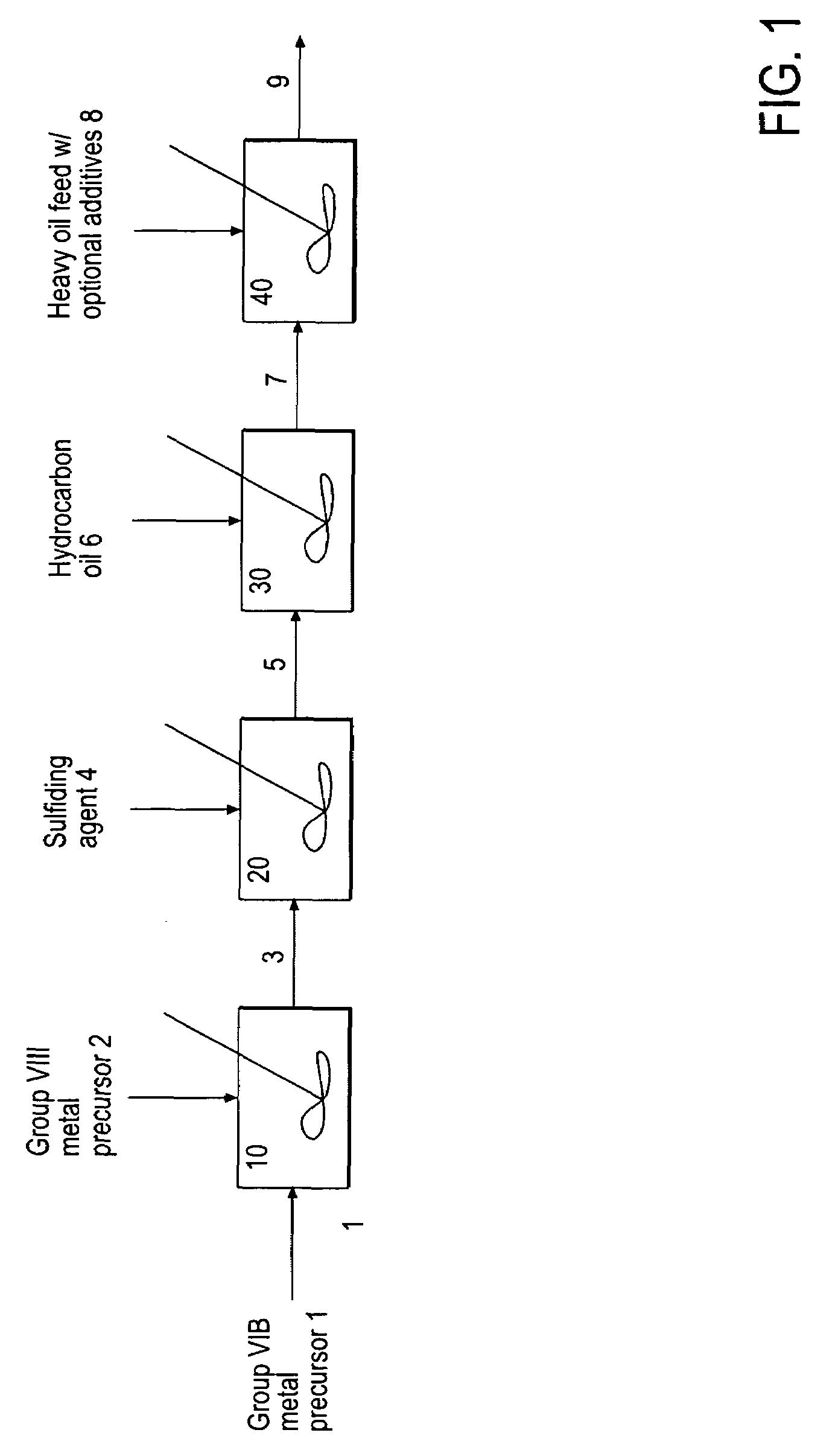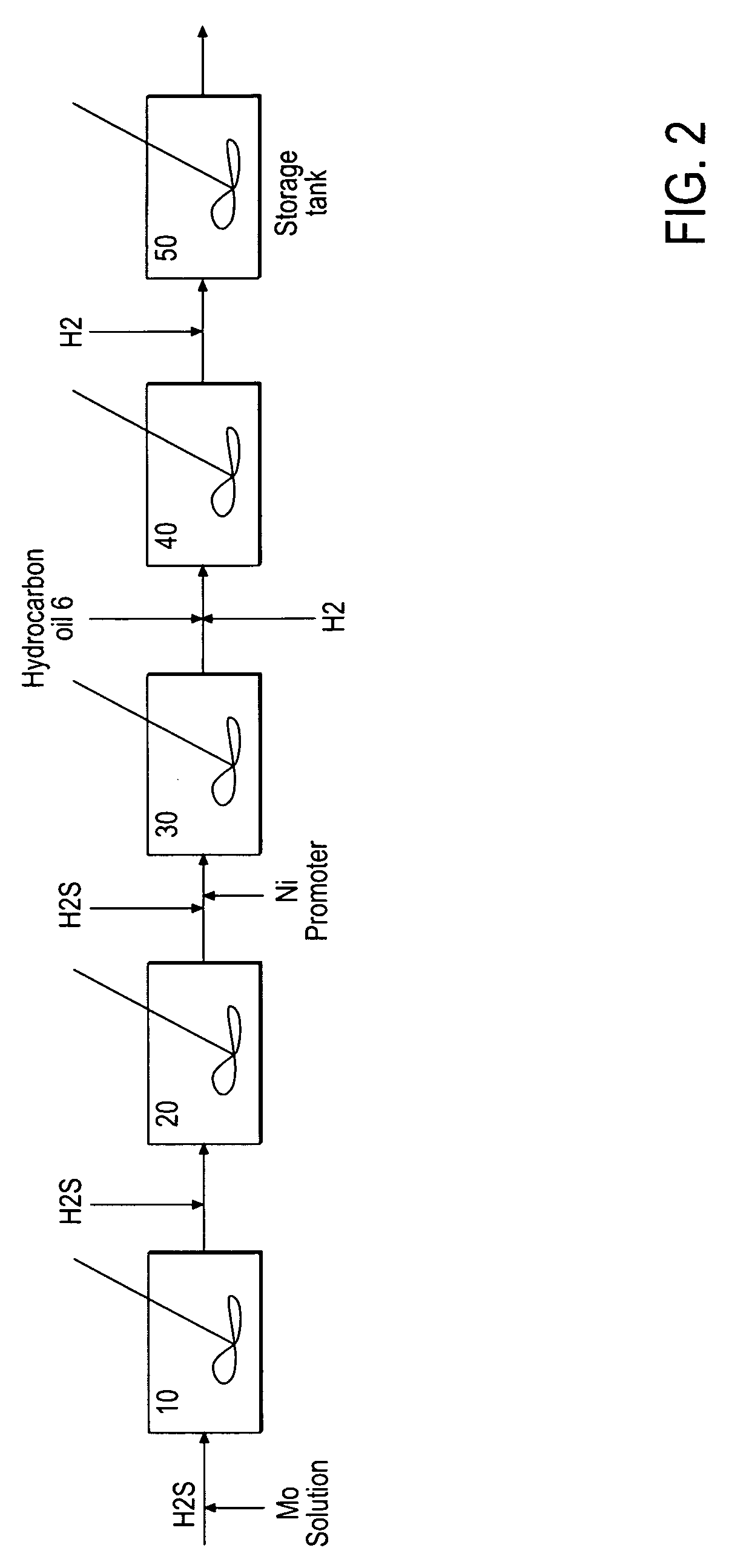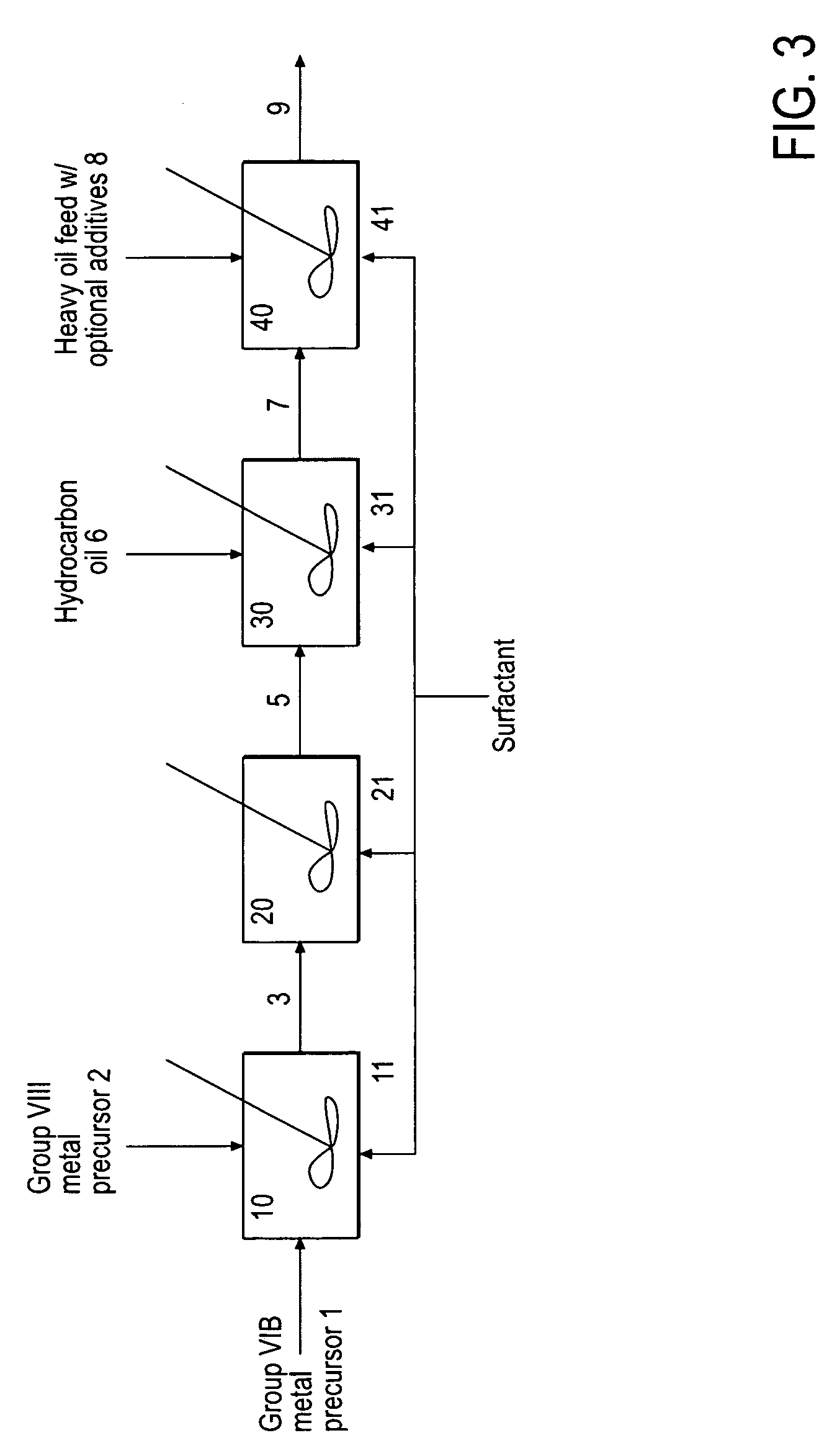Hydroprocessing bulk catalyst and uses thereof
a technology of bulk catalysts and hydroprocessing, which is applied in the direction of physical/chemical process catalysts, organic compounds/hydrides/coordination complexes catalysts, metal/metal-oxides/metal-hydroxide catalysts, etc., and can solve the problem of requiring a considerable amount of upgrading
- Summary
- Abstract
- Description
- Claims
- Application Information
AI Technical Summary
Benefits of technology
Problems solved by technology
Method used
Image
Examples
example 1
Base Example
[0163]33.12 g of ammonium heptamolybdate tetrahydrate ((NH4)6Mo7O24) was dissolved in 100 g of water in a glass vessel fitted with an overhead mechanical stirrer, and 14.1 g of concentrated ammonia solution (28 wt. % NH4OH in H2O) was added. A solution of 8.1 g of nickel sulfate hexahydrate (NiSO4.6H2O) in 32 g of water was added to the first solution, all at ambient temperature, producing an emerald-green suspension. This suspension was heated to 70° C. under atmospheric pressure, and 101 g of ammonium sulfide ((NH4)2S) solution in water (40-44 wt. %) was added slowly, over the course of 45 minutes. After that, the mixture was heated with stirring for an additional 60 minutes. The volume of the reaction mixture was reduced in half on a rotary evaporator. The resulting water-based catalyst precursor was transformed to a final oil-based catalyst with medium cycle oil (MCO) and hydrogen in a pressure test autoclave in situ.
example 2
Lower Ammonia Concentration
[0164]The procedure is similar to Example 1, using 33.12 g of ammonium heptamolybdate tetrahydrate to dissolve in 100 g of water in a glass vessel fitted with an overhead mechanical stirrer, and in this case 5 g of concentrated ammonia solution was added. A solution of 8.1 g of nickel sulfate hexahydrate in 32 g water was added to the first solution, all at ambient temperature, producing a light-green suspension. This suspension was heated to 70° C. under atmospheric pressure, and 101 g of ammonium sulfide solution was added slowly, over the course of 45 minutes. After that, the mixture was heated with stirring for an additional 60 minutes. The rest of the procedures and tests were similar to Example 1.
example 3
Higher Ammonia Concentration
[0165]8.1 g of nickel sulfate hexahydrate was dissolved at ambient temperature in a mixture of 100 g of water and 15.3 g of concentrated ammonia solution in a glass vessel fitted with an overhead mechanical stirrer. Then, 33.12 g of ammonium heptamolybdate tetrahydrate was added to this mixture, forming a green suspension. Additional 11.4 g of ammonia solution was added, to yield a clear deep-blue solutions. This solution was heated to 70° C. under atmospheric pressure, and 101 g of ammonium sulfide solution in was added slowly, over the course of 45 minutes. After that, the mixture was heated with stirring for an additional 60 minutes. The rest of the procedures and tests were similar to Example 1.
PUM
| Property | Measurement | Unit |
|---|---|---|
| 2θ | aaaaa | aaaaa |
| 2θ | aaaaa | aaaaa |
| 2θ | aaaaa | aaaaa |
Abstract
Description
Claims
Application Information
 Login to View More
Login to View More - R&D
- Intellectual Property
- Life Sciences
- Materials
- Tech Scout
- Unparalleled Data Quality
- Higher Quality Content
- 60% Fewer Hallucinations
Browse by: Latest US Patents, China's latest patents, Technical Efficacy Thesaurus, Application Domain, Technology Topic, Popular Technical Reports.
© 2025 PatSnap. All rights reserved.Legal|Privacy policy|Modern Slavery Act Transparency Statement|Sitemap|About US| Contact US: help@patsnap.com



